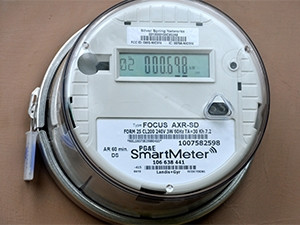
Eskom has seen a R39 million improvement of revenue collection in Soweto over a year-long period after it installed and converted customers to prepaid smart meters.
The power utility says the figure is cumulative from the 2014/15 financial year up to 30 June 2016.
Eskom says the revenue collection levels for customers in Soweto - including large power users, prepaid power users and small power users and excluding bulk suppliers - are currently at 48%.
Smart meter deployment began in 2013 in an attempt by Eskom to resolve issues around inaccurate billing, which were caused by post-implementation problems. Although the programme faced some teething problems, it is now moving ahead.
The move to prepaid smart meters is part of Eskom's plan to improve cash flow and address the power utility's debt collection challenges.
Since inception, the conversion of meters resulted in an increase in revenue billed from R200 000 per month in July 2014 to R4 million in March 2016, as demand is now being metered, as well as a drop in energy demand, due to customers now having to pay for their consumption.
Soweto has approximately 181 000 Eskom customers, 65% of whom are on a conventionally-billed metering system and the remainder are on a conventional prepaid metering system.
"We have installed over 41 628 split meters and converted 24 746 to prepaid and are planning to accelerate the roll out of prepaid meters in Soweto," says Eskom.
The conversion of the meters resulted in a gradual increase in sales, it adds.
Eskom is currently installing smart meters in Sandton, Midrand, Soweto, Kagiso and other areas around Gauteng.
"In Sandton and Midrand alone, we connected close to 14 700 meters from March 2016 to date. We aim to complete the installation of 32 000 prepaid meters in Sandton and Midrand by end of March 2017."
Eskom says there are other added benefits of converting to smart meters, including savings on meter reading, improved technical performance, reduced errors resulting from the need to bill the customer, and better consumption control by the customer which gives certainty around monthly costs for the client.
"This technology eliminates the practice of bill estimation that inconveniences customers resulting in fluctuations in the bill and unhappiness with the customer's account."
Share